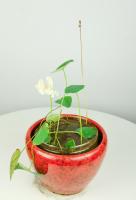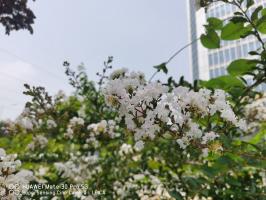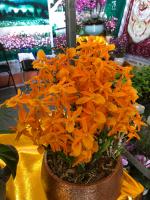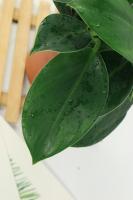Introduction
Elephant ears are a popular choice for many gardeners because of their large and impressive foliage. They're native to tropical and subtropical regions around the world and are sometimes grown as houseplants. But the question remains, do elephant ears make good houseplants? In this article, we'll explore the benefits and challenges of growing elephant ears indoors.
Advantages of growing elephant ears indoors
One advantage of growing elephant ears indoors is that they can add a tropical touch to your home decor. Their large and striking leaves can create an instant focal point in any room. Additionally, elephant ears are known for their air-purifying properties, which can help to improve indoor air quality. They absorb pollutants like formaldehyde and benzene, making it easier for you to breathe.
Challenges of growing elephant ears indoors
While there are many benefits to growing elephant ears indoors, there are also some challenges to be aware of. One is that they can be difficult to grow in a typical indoor environment. Elephant ears need a lot of light, humidity, and warmth to thrive, which can be hard to achieve indoors. If you live in an area with cold winters, you'll need to keep your elephant ears away from any drafts or cold air. You may also need to invest in a humidifier to maintain the high humidity levels that elephant ears require.
Care tips for growing elephant ears indoors
If you're up for the challenge of growing elephant ears indoors, there are several care tips that can help you succeed. First, it's important to choose the right location for your plant. Elephant ears need bright, indirect light, so a spot near a south-facing window is ideal. However, be careful not to expose your plant to direct sunlight, as this can burn its leaves. You can also rotate your plant every few weeks to ensure that all sides of the leaves get adequate light.
Another important consideration is watering. Elephant ears need to be kept consistently moist, but not waterlogged. You can use a moisture meter to ensure that the soil stays in the ideal range of moisture. Additionally, elephant ears benefit from regular fertilization during the growing season, which can help to promote healthy foliage and prevent yellowing leaves.
Conclusion
In conclusion, elephant ears can make great houseplants for those willing to put in the effort. While they require specific growing conditions, they can add a unique touch to your home decor and help to clean your indoor air. By following the care tips outlined in this article, you can successfully grow elephant ears indoors and enjoy their impressive foliage all year round.

 how many times do yo...
how many times do yo... how many planted tre...
how many planted tre... how many pine trees ...
how many pine trees ... how many pecan trees...
how many pecan trees... how many plants comp...
how many plants comp... how many plants can ...
how many plants can ... how many plants and ...
how many plants and ... how many pepper plan...
how many pepper plan...































